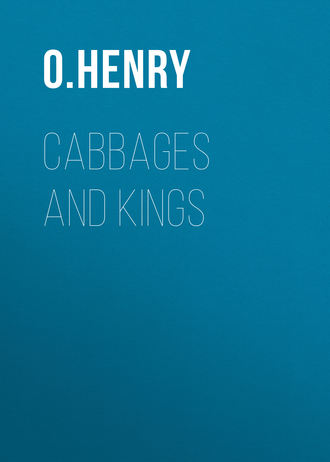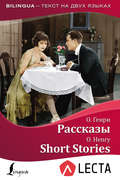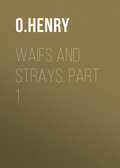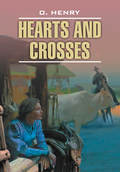
О. Генри
Cabbages and Kings
VIII
THE ADMIRAL
Spilled milk draws few tears from an Anchurian administration. Many are its lacteal sources; and the clocks' hands point forever to milking time. Even the rich cream skimmed from the treasury by the bewitched Miraflores did not cause the newly-installed patriots to waste time in unprofitable regrets. The government philosophically set about supplying the deficiency by increasing the import duties and by "suggesting" to wealthy private citizens that contributions according to their means would be considered patriotic and in order. Prosperity was expected to attend the reign of Losada, the new president. The ousted office-holders and military favourites organized a new "Liberal" party, and began to lay their plans for a re-succession. Thus the game of Anchurian politics began, like a Chinese comedy, to unwind slowly its serial length. Here and there Mirth peeps for an instant from the wings and illumines the florid lines.
A dozen quarts of champagne in conjunction with an informal sitting of the president and his cabinet led to the establishment of the navy and the appointment of Felipe Carrera as its admiral.
Next to the champagne the credit of the appointment belongs to Don Sabas Placido, the newly confirmed Minister of War.
The president had requested a convention of his cabinet for the discussion of questions politic and for the transaction of certain routine matters of state. The session had been signally tedious; the business and the wine prodigiously dry. A sudden, prankish humour of Don Sabas, impelling him to the deed, spiced the grave affairs of state with a whiff of agreeable playfulness.
In the dilatory order of business had come a bulletin from the coast department of Orilla del Mar reporting the seizure by the custom-house officers at the town of Coralio of the sloop Estrella del Noche and her cargo of drygoods, patent medicines, granulated sugar and three-star brandy. Also six Martini rifles and a barrel of American whisky. Caught in the act of smuggling, the sloop with its cargo was now, according to law, the property of the republic.
The Collector of Customs, in making his report, departed from the conventional forms so far as to suggest that the confiscated vessel be converted to the use of the government. The prize was the first capture to the credit of the department in ten years. The collector took opportunity to pat his department on the back.
It often happened that government officers required transportation from point to point along the coast, and means were usually lacking. Furthermore, the sloop could be manned by a loyal crew and employed as a coast guard to discourage the pernicious art of smuggling. The collector also ventured to nominate one to whom the charge of the boat could be safely intrusted – a young man of Coralio, Felipe Carrera – not, be it understood, one of extreme wisdom, but loyal and the best sailor along the coast.
It was upon this hint that the Minister of War acted, executing a rare piece of drollery that so enlivened the tedium of executive session.
In the constitution of this small, maritime banana republic was a forgotten section that provided for the maintenance of a navy. This provision – with many other wiser ones – had lain inert since the establishment of the republic. Anchuria had no navy and had no use for one. It was characteristic of Don Sabas – a man at once merry, learned, whimsical and audacious – that he should have disturbed the dust of this musty and sleeping statute to increase the humour of the world by so much as a smile from his indulgent colleagues.
With delightful mock seriousness the Minister of War proposed the creation of a navy. He argued its need and the glories it might achieve with such gay and witty zeal that the travesty overcame with its humour even the swart dignity of President Losada himself.
The champagne was bubbling trickily in the veins of the mercurial statesmen. It was not the custom of the grave governors of Anchuria to enliven their sessions with a beverage so apt to cast a veil of disparagement over sober affairs. The wine had been a thoughtful compliment tendered by the agent of the Vesuvius Fruit Company as a token of amicable relations – and certain consummated deals – between that company and the republic of Anchuria.
The jest was carried to its end. A formidable, official document was prepared, encrusted with chromatic seals and jaunty with fluttering ribbons, bearing the florid signatures of state. This commission conferred upon el Señor Don Felipe Carrera the title of Flag Admiral of the Republic of Anchuria. Thus within the space of a few minutes and the dominion of a dozen "extra dry," the country took its place among the naval powers of the world, and Felipe Carrera became entitled to a salute of nineteen guns whenever he might enter port.
The southern races are lacking in that particular kind of humour that finds entertainment in the defects and misfortunes bestowed by Nature. Owing to this defect in their constitution they are not moved to laughter (as are their northern brothers) by the spectacle of the deformed, the feeble-minded or the insane.
Felipe Carrera was sent upon earth with but half his wits. Therefore, the people of Coralio called him "El pobrecito loco" – "the poor little crazed one" – saying that God had sent but half of him to earth, retaining the other half.
A sombre youth, glowering, and speaking only at the rarest times, Felipe was but negatively "loco." On shore he generally refused all conversation. He seemed to know that he was badly handicapped on land, where so many kinds of understanding are needed; but on the water his one talent set him equal with most men. Few sailors whom God had carefully and completely made could handle a sailboat as well. Five points nearer the wind than even the best of them he could sail his sloop. When the elements raged and set other men to cowering, the deficiencies of Felipe seemed of little importance. He was a perfect sailor, if an imperfect man. He owned no boat, but worked among the crews of the schooners and sloops that skimmed the coast, trading and freighting fruit out to the steamers where there was no harbour. It was through his famous skill and boldness on the sea, as well as for the pity felt for his mental imperfections, that he was recommended by the collector as a suitable custodian of the captured sloop.
When the outcome of Don Sabas' little pleasantry arrived in the form of the imposing and preposterous commission, the collector smiled. He had not expected such prompt and overwhelming response to his recommendation. He despatched a muchacho at once to fetch the future admiral.
The collector waited in his official quarters. His office was in the Calle Grande, and the sea breezes hummed through its windows all day. The collector, in white linen and canvas shoes, philandered with papers on an antique desk. A parrot, perched on a pen rack, seasoned the official tedium with a fire of choice Castilian imprecations. Two rooms opened into the collector's. In one the clerical force of young men of variegated complexions transacted with glitter and parade their several duties. Through the open door of the other room could be seen a bronze babe, guiltless of clothing, that rollicked upon the floor. In a grass hammock a thin woman, tinted a pale lemon, played a guitar and swung contentedly in the breeze. Thus surrounded by the routine of his high duties and the visible tokens of agreeable domesticity, the collector's heart was further made happy by the power placed in his hands to brighten the fortunes of the "innocent" Felipe.
Felipe came and stood before the collector. He was a lad of twenty, not ill-favoured in looks, but with an expression of distant and pondering vacuity. He wore white cotton trousers, down the seams of which he had sewed red stripes with some vague aim at military decoration. A flimsy blue shirt fell open at his throat; his feet were bare; he held in his hand the cheapest of straw hats from the States.
"Señor Carrera," said the collector, gravely, producing the showy commission, "I have sent for you at the president's bidding. This document that I present to you confers upon you the title of Admiral of this great republic, and gives you absolute command of the naval forces and fleet of our country. You may think, friend Felipe, that we have no navy – but yes! The sloop the Estrella del Noche, that my brave men captured from the coast smugglers, is to be placed under your command. The boat is to be devoted to the services of your country. You will be ready at all times to convey officials of the government to points along the coast where they may be obliged to visit. You will also act as a coast-guard to prevent, as far as you may be able, the crime of smuggling. You will uphold the honour and prestige of your country at sea, and endeavour to place Anchuria among the proudest naval powers of the world. These are your instructions as the Minister of War desires me to convey them to you. Por Dios! I do not know how all this is to be accomplished, for not one word did his letter contain in respect to a crew or to the expenses of this navy. Perhaps you are to provide a crew yourself, Señor Admiral – I do not know – but it is a very high honour that has descended upon you. I now hand you your commission. When you are ready for the boat I will give orders that she shall be made over into your charge. That is as far as my instructions go."
Felipe took the commission that the collector handed to him. He gazed through the open window at the sea for a moment, with his customary expression of deep but vain pondering. Then he turned without having spoken a word, and walked swiftly away through the hot sand of the street.
"Pobrecito loco!" sighed the collector; and the parrot on the pen racks screeched "Loco! – loco! – loco!"
The next morning a strange procession filed through the streets to the collector's office. At its head was the admiral of the navy. Somewhere Felipe had raked together a pitiful semblance of a military uniform – a pair of red trousers, a dingy blue short jacket heavily ornamented with gold braid, and an old fatigue cap that must have been cast away by one of the British soldiers in Belize and brought away by Felipe on one of his coasting voyages. Buckled around his waist was an ancient ship's cutlass contributed to his equipment by Pedro Lafitte, the baker, who proudly asserted its inheritance from his ancestor, the illustrious buccaneer. At the admiral's heels tagged his newly-shipped crew – three grinning, glossy, black Caribs, bare to the waist, the sand spurting in showers from the spring of their naked feet.
Briefly and with dignity Felipe demanded his vessel of the collector. And now a fresh honour awaited him. The collector's wife, who played the guitar and read novels in the hammock all day, had more than a little romance in her placid, yellow bosom. She had found in an old book an engraving of a flag that purported to be the naval flag of Anchuria. Perhaps it had so been designed by the founders of the nation; but, as no navy had ever been established, oblivion had claimed the flag. Laboriously with her own hands she had made a flag after the pattern – a red cross upon a blue-and-white ground. She presented it to Felipe with these words: "Brave sailor, this flag is of your country. Be true, and defend it with your life. Go you with God."
For the first time since his appointment the admiral showed a flicker of emotion. He took the silken emblem, and passed his hand reverently over its surface. "I am the admiral," he said to the collector's lady. Being on land he could bring himself to no more exuberant expression of sentiment. At sea with the flag at the masthead of his navy, some more eloquent exposition of feelings might be forthcoming.
Abruptly the admiral departed with his crew. For the next three days they were busy giving the Estrella del Noche a new coat of white paint trimmed with blue. And then Felipe further adorned himself by fastening a handful of brilliant parrot's plumes in his cap. Again he tramped with his faithful crew to the collector's office and formally notified him that the sloop's name had been changed to El Nacional.
During the next few months the navy had its troubles. Even an admiral is perplexed to know what to do without any orders. But none came. Neither did any salaries. El Nacional swung idly at anchor.
When Felipe's little store of money was exhausted he went to the collector and raised the question of finances.
"Salaries!" exclaimed the collector, with hands raised; "Valgame Dios! not one centavo of my own pay have I received for the last seven months. The pay of an admiral, do you ask? Quién sabe? Should it be less than three thousand pesos? Mira! you will see a revolution in this country very soon. A good sign of it is when the government calls all the time for pesos, pesos, pesos, and pays none out."
Felipe left the collector's office with a look almost of content on his sombre face. A revolution would mean fighting, and then the government would need his services. It was rather humiliating to be an admiral without anything to do, and have a hungry crew at your heels begging for reales to buy plantains and tobacco with.
When he returned to where his happy-go-lucky Caribs were waiting they sprang up and saluted, as he had drilled them to do.
"Come, muchachos," said the admiral; "it seems that the government is poor. It has no money to give us. We will earn what we need to live upon. Thus will we serve our country. Soon" – his heavy eyes almost lighted up – "it may gladly call upon us for help."
Thereafter El Nacional turned out with the other coast craft and became a wage-earner. She worked with the lighters freighting bananas and oranges out to the fruit steamers that could not approach nearer than a mile from the shore. Surely a self-supporting navy deserves red letters in the budget of any nation.
After earning enough at freighting to keep himself and his crew in provisions for a week Felipe would anchor the navy and hang about the little telegraph office, looking like one of the chorus of an insolvent comic opera troupe besieging the manager's den. A hope for orders from the capital was always in his heart. That his services as admiral had never been called into requirement hurt his pride and patriotism. At every call he would inquire, gravely and expectantly, for despatches. The operator would pretend to make a search, and then reply:
"Not yet, it seems, Señor el Almirante – poco tiempo!"
Outside in the shade of the lime-trees the crew chewed sugar cane or slumbered, well content to serve a country that was contented with so little service.
One day in the early summer the revolution predicted by the collector flamed out suddenly. It had long been smouldering. At the first note of alarm the admiral of the navy force and fleet made all sail for a larger port on the coast of a neighbouring republic, where he traded a hastily collected cargo of fruit for its value in cartridges for the five Martini rifles, the only guns that the navy could boast. Then to the telegraph office sped the admiral. Sprawling in his favourite corner, in his fast-decaying uniform, with his prodigious sabre distributed between his red legs, he waited for the long-delayed, but now soon expected, orders.
"Not yet, Señor el Almirante," the telegraph clerk would call to him – "poco tiempo!"
At the answer the admiral would plump himself down with a great rattling of scabbard to await the infrequent tick of the little instrument on the table.
"They will come," would be his unshaken reply; "I am the admiral."
IX
THE FLAG PARAMOUNT
At the head of the insurgent party appeared that Hector and learned Theban of the southern republics, Don Sabas Placido. A traveller, a soldier, a poet, a scientist, a statesman and a connoisseur – the wonder was that he could content himself with the petty, remote life of his native country.
"It is a whim of Placido's," said a friend who knew him well, "to take up political intrigue. It is not otherwise than as if he had come upon a new tempo in music, a new bacillus in the air, a new scent, or rhyme, or explosive. He will squeeze this revolution dry of sensations, and a week afterward will forget it, skimming the seas of the world in his brigantine to add to his already world-famous collections. Collections of what? Por Dios! of everything from postage stamps to prehistoric stone idols."
But, for a mere dilettante, the æsthetic Placido seemed to be creating a lively row. The people admired him; they were fascinated by his brilliancy and flattered by his taking an interest in so small a thing as his native country. They rallied to the call of his lieutenants in the capital, where (somewhat contrary to arrangements) the army remained faithful to the government. There was also lively skirmishing in the coast towns. It was rumoured that the revolution was aided by the Vesuvius Fruit Company, the power that forever stood with chiding smile and uplifted finger to keep Anchuria in the class of good children. Two of its steamers, the Traveler and the Salvador, were known to have conveyed insurgent troops from point to point along the coast.
As yet there had been no actual uprising in Coralio. Military law prevailed, and the ferment was bottled for the time. And then came the word that everywhere the revolutionists were encountering defeat. In the capital the president's forces triumphed; and there was a rumour that the leaders of the revolt had been forced to fly, hotly pursued.
In the little telegraph office at Coralio there was always a gathering of officials and loyal citizens, awaiting news from the seat of government. One morning the telegraph key began clicking, and presently the operator called, loudly: "One telegram for el Almirante, Don Señor Felipe Carrera!"
There was a shuffling sound, a great rattling of tin scabbard, and the admiral, prompt at his spot of waiting, leaped across the room to receive it.
The message was handed to him. Slowly spelling it out, he found it to be his first official order – thus running:
Proceed immediately with your vessel to mouth of Rio Ruiz; transport beef and provisions to barracks at Alforan.
Martinez, General.
Small glory, to be sure, in this, his country's first call. But it had called, and joy surged in the admiral's breast. He drew his cutlass belt to another buckle hole, roused his dozing crew, and in a quarter of an hour El Nacional was tacking swiftly down coast in a stiff landward breeze.
The Rio Ruiz is a small river, emptying into the sea ten miles below Coralio. That portion of the coast is wild and solitary. Through a gorge in the Cordilleras rushes the Rio Ruiz, cold and bubbling, to glide, at last, with breadth and leisure, through an alluvial morass into the sea.
In two hours El Nacional entered the river's mouth. The banks were crowded with a disposition of formidable trees. The sumptuous undergrowth of the tropics overflowed the land, and drowned itself in the fallow waters. Silently the sloop entered there, and met a deeper silence. Brilliant with greens and ochres and floral scarlets, the umbrageous mouth of the Rio Ruiz furnished no sound or movement save of the sea-going water as it purled against the prow of the vessel. Small chance there seemed of wresting beef or provisions from that empty solitude.
The admiral decided to cast anchor, and, at the chain's rattle, the forest was stimulated to instant and resounding uproar. The mouth of the Rio Ruiz had only been taking a morning nap. Parrots and baboons screeched and barked in the trees; a whirring and a hissing and a booming marked the awakening of animal life; a dark blue bulk was visible for an instant, as a startled tapir fought his way through the vines.
The navy, under orders, hung in the mouth of the little river for hours. The crew served the dinner of shark's fin soup, plantains, crab gumbo and sour wine. The admiral, with a three-foot telescope, closely scanned the impervious foliage fifty yards away.
It was nearly sunset when a reverberating "hal-lo-o-o!" came from the forest to their left. It was answered; and three men, mounted upon mules, crashed through the tropic tangle to within a dozen yards of the river's bank. There they dismounted; and one, unbuckling his belt, struck each mule a violent blow with his sword scabbard, so that they, with a fling of heels, dashed back again into the forest.
Those were strange-looking men to be conveying beef and provisions. One was a large and exceedingly active man, of striking presence. He was of the purest Spanish type, with curling, gray-besprinkled, dark hair, blue, sparkling eyes, and the pronounced air of a caballero grande. The other two were small, brown-faced men, wearing white military uniforms, high riding boots and swords. The clothes of all were drenched, bespattered and rent by the thicket. Some stress of circumstance must have driven them, diable à quatre, through flood, mire and jungle.
"O-hé! Señor Almirante," called the large man. "Send to us your boat."
The dory was lowered, and Felipe, with one of the Caribs, rowed toward the left bank.
The large man stood near the water's brink, waist deep in the curling vines. As he gazed upon the scarecrow figure in the stern of the dory a sprightly interest beamed upon his mobile face.
Months of wageless and thankless service had dimmed the admiral's splendour. His red trousers were patched and ragged. Most of the bright buttons and yellow braid were gone from his jacket. The visor of his cap was torn, and depended almost to his eyes. The admiral's feet were bare.
"Dear admiral," cried the large man, and his voice was like a blast from a horn, "I kiss your hands. I knew we could build upon your fidelity. You had our despatch – from General Martinez. A little nearer with your boat, dear Admiral. Upon these devils of shifting vines we stand with the smallest security."
Felipe regarded him with a stolid face.
"Provisions and beef for the barracks at Alforan," he quoted.
"No fault of the butchers, Almirante mio, that the beef awaits you not. But you are come in time to save the cattle. Get us aboard your vessel, señor, at once. You first, caballeros – á priesa! Come back for me. The boat is too small."
The dory conveyed the two officers to the sloop, and returned for the large man.
"Have you so gross a thing as food, good admiral?" he cried, when aboard. "And, perhaps, coffee? Beef and provisions! Nombre de Dios! a little longer and we could have eaten one of those mules that you, Colonel Rafael, saluted so feelingly with your sword scabbard at parting. Let us have food; and then we will sail – for the barracks at Alforan – no?"
The Caribs prepared a meal, to which the three passengers of El Nacional set themselves with famished delight. About sunset, as was its custom, the breeze veered and swept back from the mountains, cool and steady, bringing a taste of the stagnant lagoons and mangrove swamps that guttered the lowlands. The mainsail of the sloop was hoisted and swelled to it, and at that moment they heard shouts and a waxing clamour from the bosky profundities of the shore.
"The butchers, my dear admiral," said the large man, smiling, "too late for the slaughter."
Further than his orders to his crew, the admiral was saying nothing. The topsail and jib were spread, and the sloop glided out of the estuary. The large man and his companions had bestowed themselves with what comfort they could about the bare deck. Belike, the thing big in their minds had been their departure from that critical shore; and now that the hazard was so far reduced their thoughts were loosed to the consideration of further deliverance. But when they saw the sloop turn and fly up coast again they relaxed, satisfied with the course the admiral had taken.
The large man sat at ease, his spirited blue eye engaged in the contemplation of the navy's commander. He was trying to estimate this sombre and fantastic lad, whose impenetrable stolidity puzzled him. Himself a fugitive, his life sought, and chafing under the smart of defeat and failure, it was characteristic of him to transfer instantly his interest to the study of a thing new to him. It was like him, too, to have conceived and risked all upon this last desperate and madcap scheme – this message to a poor, crazed fanatico cruising about with his grotesque uniform and his farcical title. But his companions had been at their wits' end; escape had seemed incredible; and now he was pleased with the success of the plan they had called crack-brained and precarious.
The brief, tropic twilight seemed to slide swiftly into the pearly splendour of a moonlit night. And now the lights of Coralio appeared, distributed against the darkening shore to their right. The admiral stood, silent, at the tiller; the Caribs, like black panthers, held the sheets, leaping noiselessly at his short commands. The three passengers were watching intently the sea before them, and when at length they came in sight of the bulk of a steamer lying a mile out from the town, with her lights radiating deep into the water, they held a sudden voluble and close-headed converse. The sloop was speeding as if to strike midway between ship and shore.
The large man suddenly separated from his companions and approached the scarecrow at the helm.
"My dear admiral," he said, "the government has been exceedingly remiss. I feel all the shame for it that only its ignorance of your devoted service has prevented it from sustaining. An inexcusable oversight has been made. A vessel, a uniform and a crew worthy of your fidelity shall be furnished you. But just now, dear admiral, there is business of moment afoot. The steamer lying there is the Salvador. I and my friends desire to be conveyed to her, where we are sent on the government's business. Do us the favour to shape your course accordingly."
Without replying, the admiral gave a sharp command, and put the tiller hard to port. El Nacional swerved, and headed straight as an arrow's course for the shore.
"Do me the favour," said the large man, a trifle restively, "to acknowledge, at least, that you catch the sound of my words." It was possible that the fellow might be lacking in senses as well as intellect.
The admiral emitted a croaking, harsh laugh, and spake.
"They will stand you," he said, "with your face to a wall and shoot you dead. That is the way they kill traitors. I knew you when you stepped into my boat. I have seen your picture in a book. You are Sabas Placido, traitor to your country. With your face to a wall. So, you will die. I am the admiral, and I will take you to them. With your face to a wall. Yes."
Don Sabas half turned and waved his hand, with a ringing laugh, toward his fellow fugitives. "To you, caballeros, I have related the history of that session when we issued that O! so ridiculous commission. Of a truth our jest has been turned against us. Behold the Frankenstein's monster we have created!"
Don Sabas glanced toward the shore. The lights of Coralio were drawing near. He could see the beach, the warehouse of the Bodega Nacional, the long, low cuartel occupied by the soldiers, and, behind that, gleaming in the moonlight, a stretch of high adobe wall. He had seen men stood with their faces to that wall and shot dead.
Again he addressed the extravagant figure at the helm.
"It is true," he said, "that I am fleeing the country. But, receive the assurance that I care very little for that. Courts and camps everywhere are open to Sabas Placido. Vaya! what is this molehill of a republic – this pig's head of a country – to a man like me? I am a paisano of everywhere. In Rome, in London, in Paris, in Vienna, you will hear them say: 'Welcome back, Don Sabas.' Come! —tonto– baboon of a boy – admiral, whatever you call yourself, turn your boat. Put us on board the Salvador, and here is your pay – five hundred pesos in money of the Estados Unidos– more than your lying government will pay you in twenty years."
Don Sabas pressed a plump purse against the youth's hand. The admiral gave no heed to the words or the movement. Braced against the helm, he was holding the sloop dead on her shoreward course. His dull face was lit almost to intelligence by some inward conceit that seemed to afford him joy, and found utterance in another parrot-like cackle.
"That is why they do it," he said – "so that you will not see the guns. They fire – oom! – and you fall dead. With your face to the wall. Yes."
The admiral called a sudden order to his crew. The lithe, silent Caribs made fast the sheets they held, and slipped down the hatchway into the hold of the sloop. When the last one had disappeared, Don Sabas, like a big, brown leopard, leaped forward, closed and fastened the hatch and stood, smiling.
"No rifles, if you please, dear admiral," he said. "It was a whimsey of mine once to compile a dictionary of the Carib lengua. So, I understood your order. Perhaps now you will – "
He cut short his words, for he heard the dull "swish" of iron scraping along tin. The admiral had drawn the cutlass of Pedro Lafitte, and was darting upon him. The blade descended, and it was only by a display of surprising agility that the large man escaped, with only a bruised shoulder, the glancing weapon. He was drawing his pistol as he sprang, and the next instant he shot the admiral down.
Don Sabas stooped over him, and rose again.
"In the heart," he said briefly. "Señores, the navy is abolished."
Colonel Rafael sprang to the helm, and the other officer hastened to loose the mainsail sheets. The boom swung round; El Nacional veered and began to tack industriously for the Salvador.
"Strike that flag, señor," called Colonel Rafael. "Our friends on the steamer will wonder why we are sailing under it."
"Well said," cried Don Sabas. Advancing to the mast he lowered the flag to the deck, where lay its too loyal supporter. Thus ended the Minister of War's little piece of after-dinner drollery, and by the same hand that began it.







